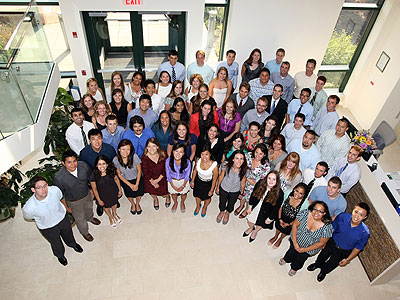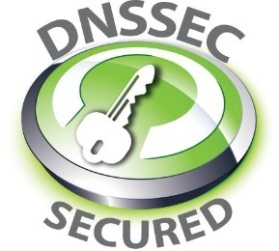Cyber Warfare: National Security in the Information Age
Today is an exciting day as we commence our cyber warfare week. Our NDA visitor this week is a managing attorney with Cisco Systems, Inc. where he serves as legal counsel to the company’s global government solutions group. He recently completed a term as Cisco fellow at the Wilson Center. Previously he served as an officer in the United States Marine Corps.
In the past militaries have come by land, by sea, or by air but in the age of the Internet the battlefield may be digital. This week our NDA visitor will share his views on the current threat that cyber-terrorism poses to the United States and the nation’s current effort to combat these threats. Our visitor will illustrate the difficult job the U.S. government and private entities face when it come to cyber-security in the 21st century.
Welcome new students!
We hope Week 1 at ITU is going smoothly for you. Hopefully you have already discovered the quickest way to and from uni, found your classrooms, met some people in your course and enjoyed some on-campus culture.
If the Academic Integrity Module (AIM) appears on your list of LMS subjects, please complete it by the end of Week 1. Even if you have studied at tertiary level before, you will need to understand ITU’s expectations and policies – and your responsibilities as a member of this academic community. All commencing students will be enrolled in AIM which is accessed via the Learning Management System (LMS).
AIM will guide you through your responsibilities; provide examples of academic misconduct; and show you where to find useful information and examples of referencing styles specific to your course. It will also lead you to other useful information such as the Academic Referencing Module and Academic Referencing Tool provided by the Library where many great resources exist.
If you’re encountering difficulties of any kind, please contact your iMentor, your tutor, or email
DNSSEC workshop Saturday 16 March
Come and learn how to sign domain names with Jacob Schlater, which is one of the best in the field of DNSSEC. ITU invites you to a DNSSEC workshop on Saturday 16 March 2013 from 10am to 5pm local time. The workshop is held in the ITU Building, O’Sullivan Auditorium.
Participation is free but you must sign up before 8 March by contacting Student Services.
You must bring your laptop with an SSH client.
During the workshop there will be refreshments and a light lunch.
Jacob has 15 years of professional experience behind him, and has been active as a consultant since 1996. Before that, he worked with systems administration and teaching at Chalmers University of Technology in Gothenburg. Jacob has extensive knowledge in areas such as software development, systems- and protocol design. Knowledge and experience that he applies in research and development projects as well as when performing in-depth security analysis of critical system components.
Current assignments primarily includes expert consulting regarding network and IT security – in Sweden as well as internationally. Among Jacob’s more specific areas of expertise one can find DNSSEC, VoIP, IPv6 and applied cryptography, and he is a frequent and popular speaker within these areas.
Jacob is well established within organizations such as IETF (Internet Engineering Task Force) and RIPE (Réseaux IP Européens), and is the author of several Internet standards and specifications (IETF RFC). He is also one of the active developers behind OpenBSD, OpenSSH and OpenDNSSEC.
DNSSEC and OpenDNSSEC workshop.
Brief introduction to DNSSEC and the OpenDNSSEC application
Prerequisites for running OpenDNSSEC and description of the lab environment
Practical planning of your DNSSEC policies, based on three reference cases
SoftHSM installation and initialization
Configuration files for ODS, conf.xml , kasp.xml and zonelist.xml
Files and folders used by ODS
Running OpenDNSSEC – Sign a single zone – List keys – Export public keys – Roll a ZSK, manually and automatically – Roll a KSK – Signing many zones
Monitoring the system with the Audit tool
System administration – Backups – Key administration – Logging
Official appointment of the ITU Governing Board: the University of Information Technologies set for an Autumn launch in Canberra
The ITU’s first Governing Board was officially appointed today following a Commission Decision. The Board will hold its inaugural meeting in Canberra on 15 September 2012 with a view to establish the basis that will lead to the launch of the first of three campuses in January 2013.
Welcoming the appointment, President José Barsano stated: “I am delighted with the nomination of the ITU’s first Governing Board. I am convinced that the excellence of the Board’s members will make it a success. The ITU is soon to become a reality. The world today needs more than ever a strong commitment to innovation and technology.”
The ITU’s initial Governing Board comprises 18 professionals, providing a collective balance of expertise and experience from the worlds of business, research and higher education. All have widespread reputations in their various fields and the majority have dual academic-industrial backgrounds.
The Governing Board members were chosen by an ad-hoc independent Identification Committee following a two-stage public consultation.
Following the entry into force of the ITU Regulation in April 2012, and the choice of Canberra as the ITU headquarters in June, the first ITU Governing Board meeting on 15 September will mark the official launch of the ITU’s activities.




